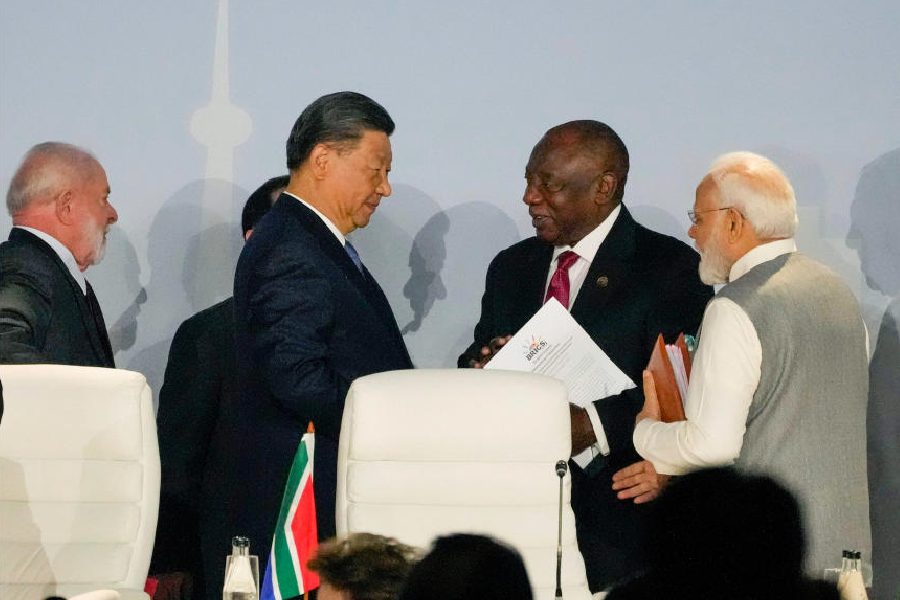Amid apprehensions within the foreign policy network that Chinese President Xi Jinping’s decision to skip the G20 summit in Delhi portends difficult times ahead in the bilateral relationship, Beijing on Tuesday sought to suggest that it was not a reflection on India-China relations.
Asked at the daily briefing whether the decision to send Premier Li Qiang to India in place of Xi reflects tensions between the two countries, Chinese foreign ministry spokesperson Mao Ning said: "China-India relations have been stable on the whole and our two sides have maintained dialogue and communication at various levels. The continued improvement and growth of China-India relations serve the common interests of the two countries and two peoples. We stand ready to work with India to further improve and advance bilateral relations."
While the external affairs ministry has not reacted to China’s announcement that Li will lead the Chinese delegation to the summit this weekend, the decision has got retired diplomats and foreign policy wonks worried. In an interview with Karan Thapar for The Wire, India’s former ambassador to China and director of the Institute of Chinese Studies, Ashok Kantha, said: "There is a clear messaging — both in context of our relations with China as also in the context of the importance China and Xi Jinping attach to G20 as a platform.
"The fact that Xi Jinping is not coming to India — coming soon after the informal conversation President Xi and Prime Minister Narendra Modi had in Johannesburg where two sides came out with contradictory narratives and the publication of the so-called standard map of China, which led to a very sharp rejoinder from India — only reaffirms that India-China relations are in a downward spiral. And, the possibility of relations improving anytime soon is not looking very bright.’’
While reluctant to call it a "snub", Kantha underscored the fact that Xi chose to stay away "knowing fully well the kind of importance the government of India and Prime Minister Modi personally are attaching to the summit’’.
India’s former high commissioner to Pakistan Sharat Sabharwal in a post on X (formerly Twitter) said Xi’s decision to skip the summit "is an indicator of a continued troubled relationship and we should be prepared for more trouble ahead’’.
He was responding to JNU professor Happymon Jacob who said: "Xi Jinping to skip G20 summit — Let's Call It What It Really Is! That is a $18 trillion economy snubbing the $3.75 trillion economy. That is a rising superpower trying to show India 'its place'! Bothering not to give any reason for Xi's absence is rubbing it in. The age of Sino-Indian 'let's resolve our differences through dialogue’ phase may well be over. We may not see any more summit level visits soon. If so, brace for impact.’’
Former foreign secretary Kanwal Sibal, however, differed with him. "Xi opting out is defensive. Its ties with US, Europe, Japan, India troubled. So is economy. With Putin absent, Xi more exposed. China dominates BRICS & Xi stood out more with Putin’s absence. If US with 24.5 trillion economy attends where’s the snub?’’
The London-based Financial Times said: "The absence of China’s president will be a blow to India’s rotating presidency of the multilateral gathering and the status of the New Delhi summit. It also shakes the stature of the G20 as the pre-eminent global leadership forum, amid deep fissures between its members.’’










